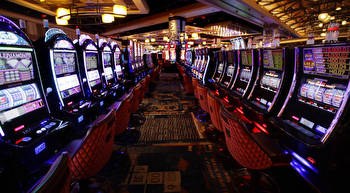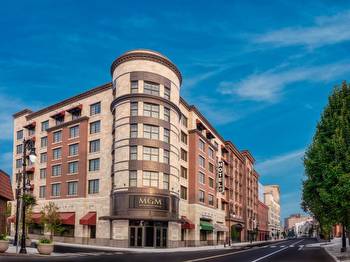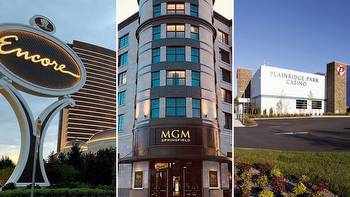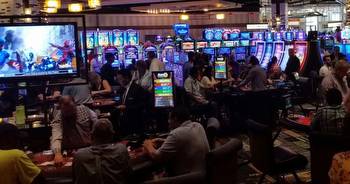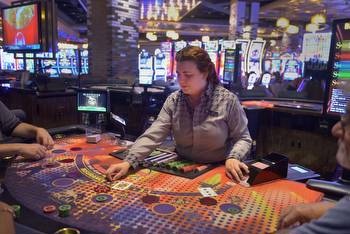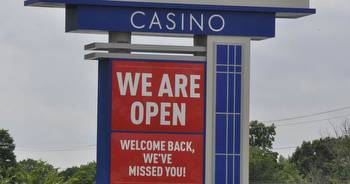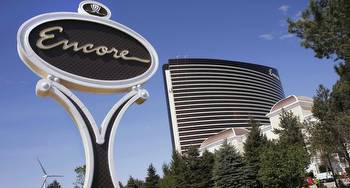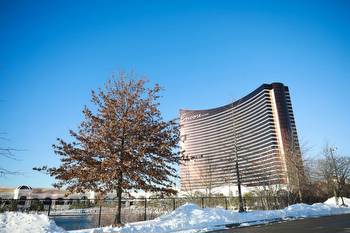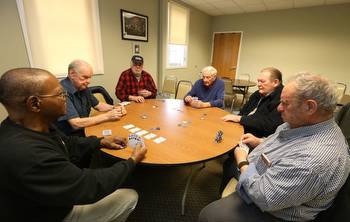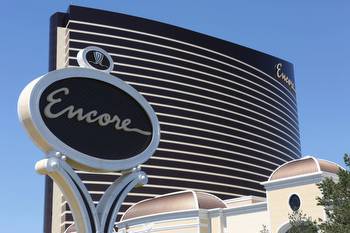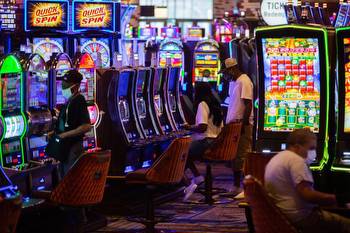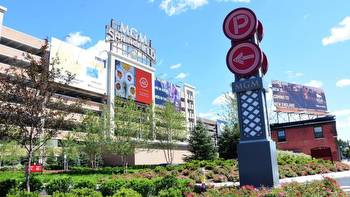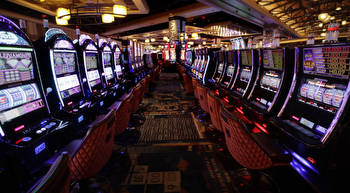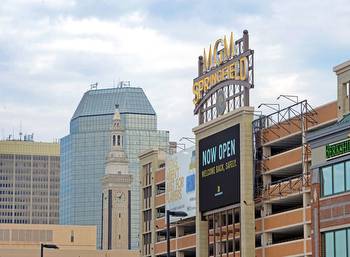Massachusetts casinos report monthly revenue up 3% to $99M in July; regulator urges operators to open more table games

The Massachusetts Gaming Commission reported Tuesday the financial results for the month of July 2022 atMGM Springfield, Plainridge Park Casino, and Encore Boston Harbor, which amounted to a total of approximately $99 million in gross gaming revenue. The figure represents a $3 million, or 3,1% increase from the $96 million in July 2021.
Of the $99 million the largest share came from Encore Boston Harbor. The Everett casino took in $64.7 million — a little more than $35 million from slot machines and $29.67 million from table games.
MGM Springfield, the only other full-scale casino in the state, reported July revenue of $21.5 million. $17.27 million of that came from slot machines in Springfield. Meanwhile, Plainridge Park Casino reported $12.4 million in revenue, which came from slot machines.
Encore’s monthly revenue translates into just more than $16.18 million in taxes and fees for the state, while MGM’s monthly gaming revenue means about $5.39 million for the state’s coffers.

To date, the Commonwealth has collected approximately $1.155 billion in total taxes and assessments from PPC, MGM, and Encore since the respective openings of each gaming facility.
Aditionally, according to a recent announcement, and following complaints from the public about the availability of poker at the casinos, gambling regulators in the state want the resort casinos to open more table games. Spot checks in July found wait times of as long as an hour for a seat at a poker table at MGM Springfield and similar waits at Encore. It shows the demand for poker that is not being satisfied by the casinos, said Commissioner Brad Hill.
In the latest report, the MGM -which is licensed for 100 table games such as blackjack and roulette- as of last month was operating fewer than half that number. In July, the resort reported having 269 card dealers, table game operators, and poker supervisors, according to data reported at a meeting last week of the gaming commission. However, just before the casino had to close due to the pandemic in March 2020, there were 444 people employed in those jobs, as reported by the WAMC.
In March 2020, MGM had 22 poker tables open, but now it only has 14. Meanwhile, Encore Boston Harbor casino had 74 poker tables before the COVID-forced closure and just 15 now.

"That is not acceptable," said Massachusetts Gaming Commission Chair Cathy Judd-Stein. "The fewer table games they have, the more they look like a slots parlor,” she stated. According to Judd-Stein, when the legislation expanded gaming in the state in 2011, job creation was one of the main reasons. “We want the full complement of games, not only because that’s what our patrons want, but also the jobs that are attached,” Judd-Stein added.
A spokesperson for MGM said they would reserve comment until the casino presents a quarterly report to the Commission in September. It is however worth noting that, MGM’s last quarterly report to the commission in March 2022 listed a total of 1,203 employees, down from 2,500 in March 2020. According to Bruce Band, the Deputy Director of the Investigations and Enforcement Bureau at the Gaming Commission,MGM has struggled to hire and retain table game dealers.

As reported this week, Gaming regulators in Massachusetts are set to sit down with the state’s gaming interests this Thursday –including casinos, simulcast centers, and slots parlors– to discuss their plans for the upcoming sports betting market. Wagering on sporting events was passed by lawmakers earlier this month through a last-minute compromise as formal sessions reached their end, a move Sen. Eric Lesser said in a new interview is set to allow the Bay State to catch up with its neighbors.
The new gaming law, which was signed by Gov. Charlie Baker last week, calls for a framework that includes two main categories: in-person betting licenses (plus mobile allowances) for the state’s two casinos, two simulcast centers, and one slots parlor; and up to seven separate mobile-only betting licenses to be handed through a bidding process.








